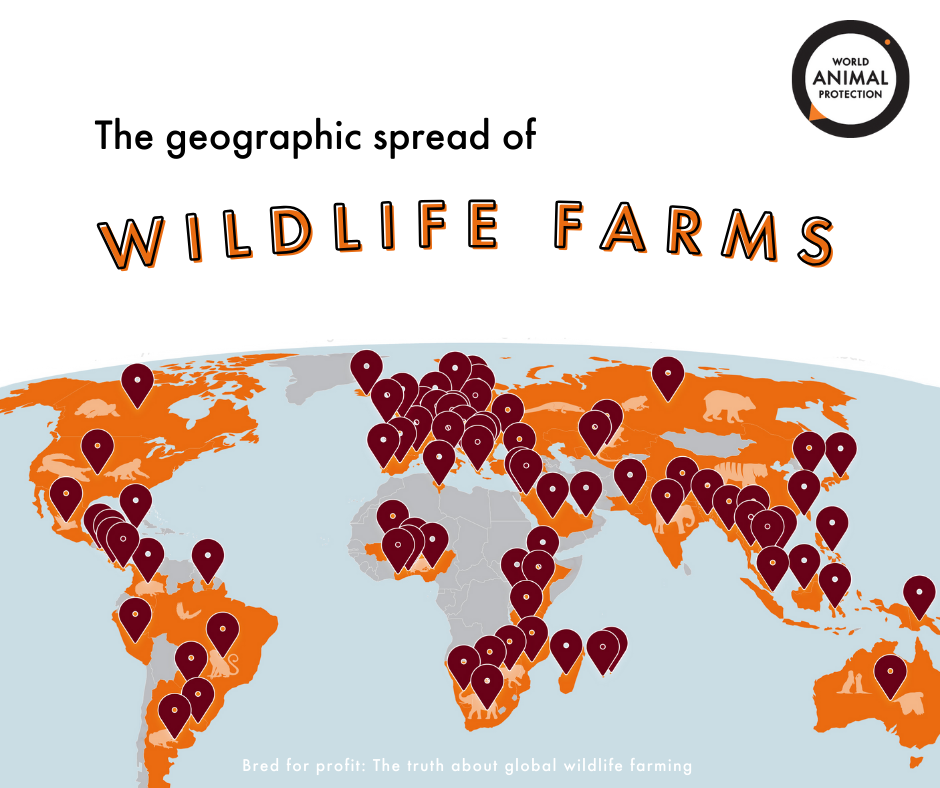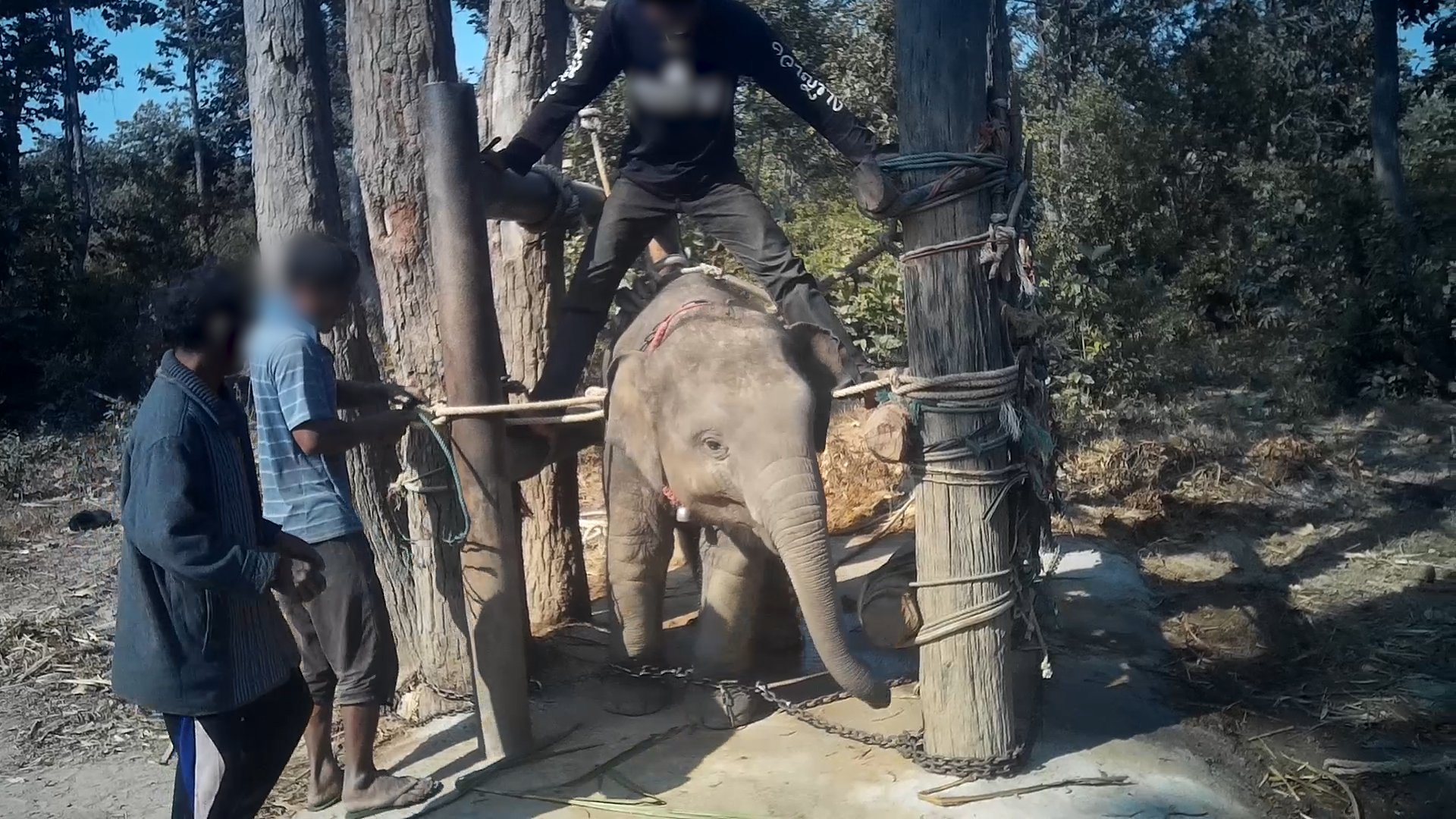In a world where wild animals are ruthlessly exploited for profit—traded as pets, showcased for entertainment, and turned into ornaments, luxury delicacies, and fashion—our report, "Bred for Profit", delves into the global scale of wildlife farming and how to make this the last generation of wild animals exploited for commercial gain.
Wildlife farming is the problem not the solution
Wildlife farming is often portrayed as a solution to the conservation of wildlife species and as a safe and stable source of income for local communities.
But this poorly regulated multimillion-dollar industry can be catastrophic for animal welfare and has the potential to cause widespread problems for public health and wild populations.
Our research found an astonishing lack of transparency and inadequate monitoring across the industry. Based on the limited available data, we estimated 5.5 billion wild animals are being kept in cruel conditions on commercial wildlife farms

The map shows wildlife farms reported in 90 countries globally from 2000 to 2020, more countries are likely involved, but records are unavailable.
The Global Impact of Wildlife Farming
- In these farms, wild animals can suffer from malnourishment, disease, stress-induced behaviours, injuries, infected wounds, and even cannibalism.
- Wildlife farms also pose a risk to human health the conditions (high density, poor hygiene, close contact with people) increase the chance for disease emergence and transmission of infectious diseases such as COVID-19.
- The low prices of farmed wildlife products may spur increased demand and enable the illicit laundering of wild-caught animals through farms.
How to end wildlife farming globally
Address the root causes
In the Bred for Profit report, World Animal Protection calls for comprehensive solutions addressing the root causes of wildlife farming. Instead of simply trying to regulate or improve conditions, we outline the steps to entirely phase out this cruel industry.
New laws and policies
The report outlines potential solutions for governments to tackle the wildlife farming industry. These efforts should include new legal frameworks, improved enforcement, and actions to reduce demand and increase support for alternative livelihoods.

Undercover footage captured in 2018, 2019 and 2020 detailing the practices involved in training multiple baby elephants for use in the tourist industry.

Make a pledge
What can I do to help?
Elephants who are used in tourism have a population primarily sustained through captive breeding, which is a form of wildlife farming.
Our Thai team is pushing forward an Elephant Bill, a pivotal step aimed at enhancing the living conditions and overall welfare of elephants involved in Thailand's tourism industry.
Your pledge can significantly impact the success of driving a ban forward.
Pledge your support by joining our mailing list to hear the latest campaign updates from World Animal Protection, and how you can help us end animal cruelty. Forever

